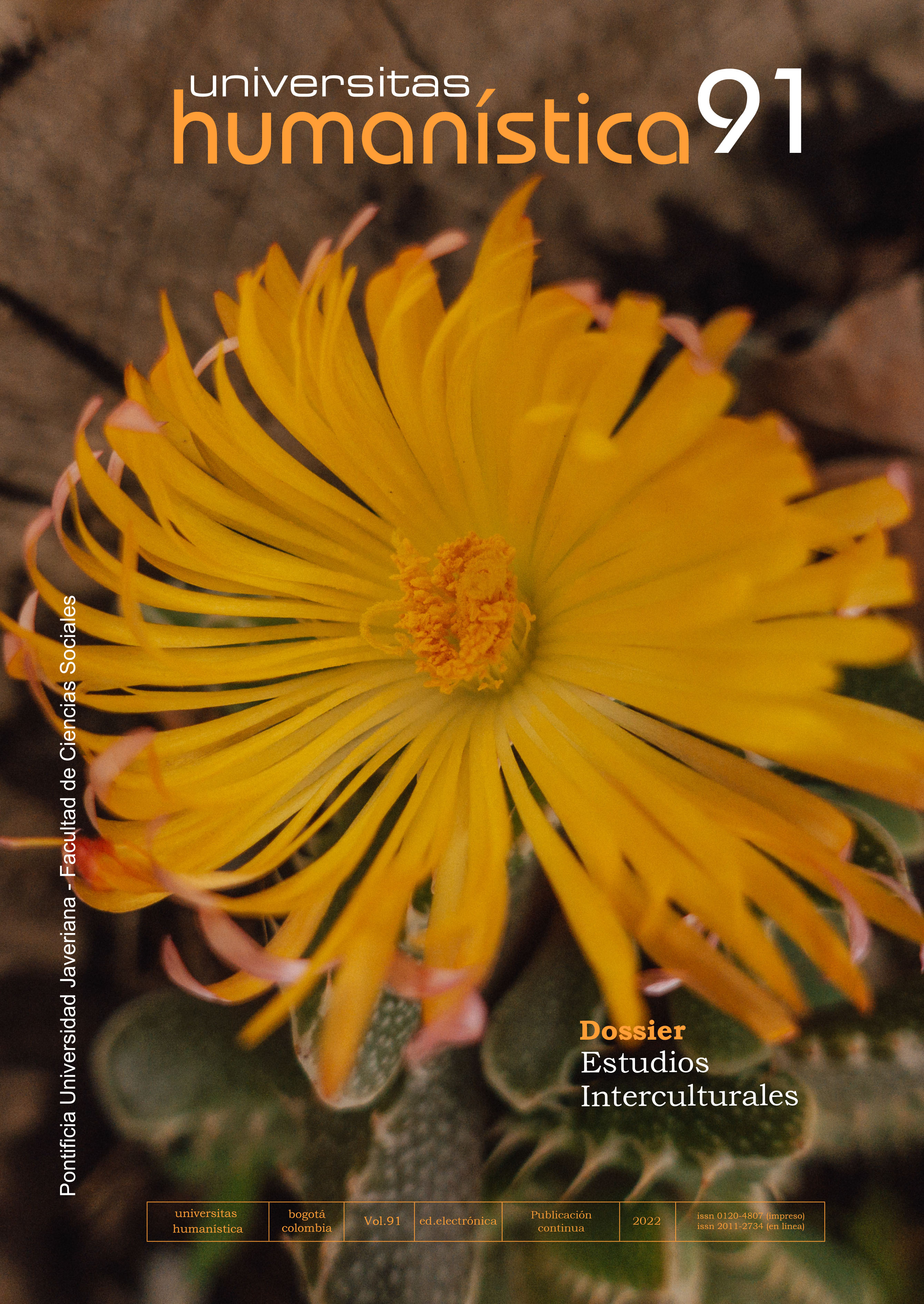Decolonial Tensions and Complexity of Sociocultural Knowledge of Subalternity
##plugins.themes.bootstrap3.article.details##
This paper analyzes the incommensurable and incommensurable nature of subalternity, which materializes a position without an identity whose intelligibility is complex, especially when we try to access the configurations of its ontopolitical schema. Subalternity constructs a binary opposition to the nation-state. It is necessary to fight for the production of new criteria of legibility of the educational and cultural subject. This problem is reduced to an obstruction in its ontopolitical and existential rules of intelligibility of a wide constellation of specific heterogeneous groups amalgamated through political, structural, relational, contingent and historical issues that determine their units of cultural legibility. The method employed is that of critical documentary review, organizing a critical corpus of review works derived from intercultural studies, subalternity and postcoloniality. Each of them are key to promote other types of epistemological performances in this regard. Among the main findings and conclusions, we note that subalternity documents a deeper methodological problem: we do not know exactly what the cultural and political agency of such groups consists of. The only thing we should not forget is that we, educators, are at the service of subaltern groups, our task is to learn from their environment, to become a disciple of their cultural space.
subalternidad, ontologías relacionales, material de inteligibilidad, procesos ontopolíticos, pluriversosubalternity, ontologies, relational ontologies, material of intelligibility, ontopolitical processes, pluriversesubalternidade, ontologias relacionais, material de inteligibilidade, processos ontopolíticos, pluriverso
Chakrabarty, D. (2000). Desprovincializar Europa. Princeton University Press.
Deleuze, G. (2007). Deux régimes de fous. Editions de Minuit.
Deleuze, G. (2013). Diferencia y repetición. Amorrortu.
Escobar, A. (2010). Una minga para el posdesarrollo: lugar, medio ambiente y movimientos sociales en las transformaciones globales. Universidad Nacional Mayor de San Marcos.
Escobar, A. (2014). Sentipensar con la tierra. Nuevas lecturas sobre desarrollo, territorio y diferencia. UNAULA.
Escobar, A. (2018). Designs for the Pluriverse. Radical Interdependence, Autonomy, and the Making of Worlds. Duke University Press. https://doi.org/10.1215/9780822371816
Fanon, F. (2001). Racisme et Culture. La Découverte.
Fanon, F. (2009). Piel negra, máscaras blancas. Akal. https://doi.org/10.7476/9788523212148
Gudynas, E., y Acosta, A. (2011). La renovación de la crítica al
desarrollo y el buen vivir como alternativa. Utopía y Praxis
Latinoamericana, 16(53), 71-83.
Gutiérrez, R. (2012). Pistas reflexivas para orientarnos en una
turbulenta época de peligro. En, R. Gutiérrez, O. Olivera, R. Zibechi, H. Mondragón, N. Sierra, V. Almendra, P. Dávalos, E. Rozental y P. Mamani (eds.),
Palabras para tejernos, resistir y transformar en la época que
estamos viviendo (pp. 9-34). Pez en el árbol.
Hill Collins, P. (2015). Intersectionality's Definitional Dilemmas. Annual Review of Sociology, 41(1), 1-20. https://doi.org/10.1146/annurev-soc-073014-112142
Maldonado-Torres, N. (2007). Sobre la colonialidad del ser: contribuciones al desarrollo de un concepto. http://ram-wan.net/restrepo/decolonial/17-maldonado-colonialidad%20del%20ser.pdf
Maturana, H., y Varela, F. (1987). El árbol del conocimiento. Dolmen.
Mignolo, W. (2005). La idea de América Latina. La herida colonial y la opción descolonial. Gedisa.
Mignolo, W. (2018). On descoloniality. Concepts, analytics, praxis. Duke University Press. https://doi.org/10.1215/9780822371779
Ocampo, A. (2021). Ontología de la educación inclusiva: devenires neomaterialistas. Educação, 46(1), 1-22. https://doi.org/10.1215/9780822375852-007
O’Hanlon, R. (1988). Recovering the Subject Subaltern Studies and Histories of Resistance in Colonial South Asia. Modern Asian Studies, 22(1), 189-224. https://doi.org/10.1017/S0026749X00009471
Sharma, N. (2018). Strategic Anti-Essentialism: Decolonizing Decolonization. En K. Mckiitick (edit.), Sylvia Wynter: On Being Human as Práxis (pp. 164-182). Duke University Press. https://doi.org/10.1215/9780822375852-007
Sousa, B. (2009). Epistemologías del sur. Fondo de Cultura Económica/Clacso.
Spivak, G. (1988). ¿Puede hablar el subalterno? Memoria Académica. https://www.memoria.fahce.unlp.edu.ar/art_revistas/pr.2732/pr.2732.pdf
Spivak, G. (2002). Otras Asias. Akal.
Spivak, G. (2003). Death of a Discipline. Columbia University Press.
Spivak, G. (2010). Crítica a la razón poscolonial. Hacia una crítica del presente evanescente. Akal.
Spivak, G. (2012). Educación estética en la era de la globalización. Harvard University Press.
Wynter, S. (1995). The Pope Must Have Been Drunk, the King of Castile a Madman: Culture as Actuality and the Caribbean Rethinking of Modernity. En A. Ruprecht y C. Taiana (eds.), Reordering of Culture: Latin America, the Caribbean and Canada in the Hood (pp. 17-41). Carleton University Press.

This work is licensed under a Creative Commons Attribution 4.0 International License.


